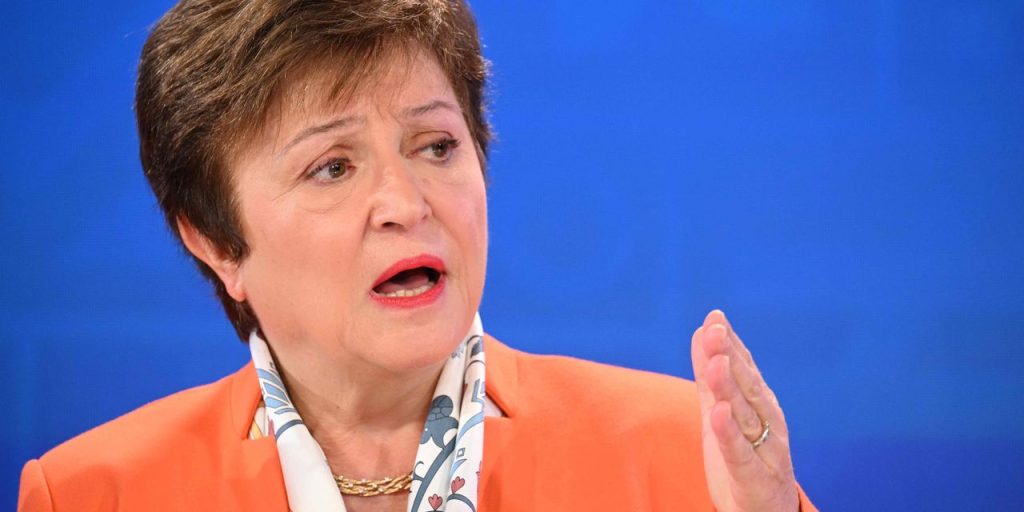IMF Managing Director Kristalina Georgieva on Thursday said it was important that the tensions between the U.S. and China not devolve into a second Cold War.
At a press briefing at the start of the IMF/World Bank meetings of finance ministers and central bankers. Georgieva called for “cool-headedness” and rational policies to lower tension.
Tension between the U.S. and China has cast a pall over the IMF/World Bank meetings here this week.
Geopolitical tension has risen as the U.S. has been sharply critical of China’s support for Russia in the war against Ukraine.
For its part, China has been upset by recent strong signs of U.S. support for Taiwan. Only last week, House Speaker Kevin McCarthy met with Taiwanese President Tsai Ing-wen. China considers Taiwan a breakaway province.
Raghuram Rajan, the former head of India’s central bank and now an economics professor at the University of Chicago’s Booth School of Business, said he was worried about the path that Washington and Beijing are now on.
“It is the key relationship in the world – that is fracturing. I hope they talk more. They’re not. They should,” he said.
If forced to choose sides, “countries will be in a very difficult position,” Rajan said.
As the Covid pandemic has eased, the Biden administration has launched a policy dubbed “friend-shoring” designed to make sure that key inputs of supply chains are manufactured in trusted countries.
Georgieva has previously warned this could lead to a “fragmentation” of the global economy.
At her press conference, Georgieva said that some move to make sure that supply chains are reliable is understandable in the wake of Russia’s invasion of Ukraine.
“Russia invading Ukraine…is a tragedy for the global community because it sends a message that defense expenditures have to go up…and more reliance on friendship, more reliability [of supply chains] is going to be sought,” Georgieva said.
“The question is ‘can we be more determined to enhance security of supplies but not push the world that far that we are into a second Cold War’,” she said.
Georgieva said she believed this was still possible.
Georgieva, who was born in Bulgaria, said she understands the first hand the negative consequences of a Cold War, which she said were a “loss of talent” who could otherwise contribute to global well-being.
“I don’t want to see that repeated,” she said, adding that it was still possible.
Fragmentation could cost the global economy anywhere in a range of 0.2% to 7% of GDP, Georgieva said.
So the goal is to accept there would be some fragmentation but keep these costs low.
At her press conference earlier this week, U.S. Treasury Secretary Janet Yellen said the administration’s new trade stance was only aimed at few bilateral areas with China.
“I think the argument that friend-shoring is going to cause huge fragmentation and loss of the benefits of trade is really not valid,” Yellen said.
Georgieva said the IMF can bring everyone to the table to build a common understanding.
Read the full article here




